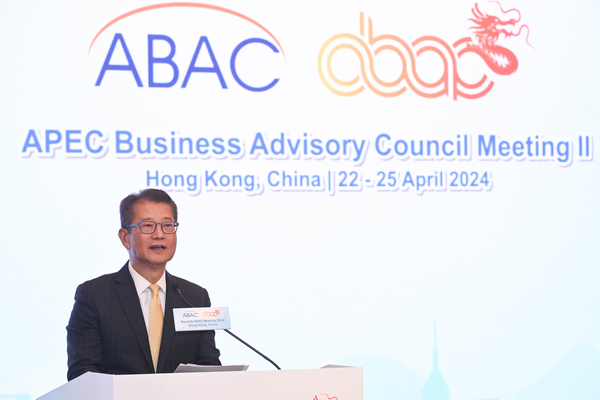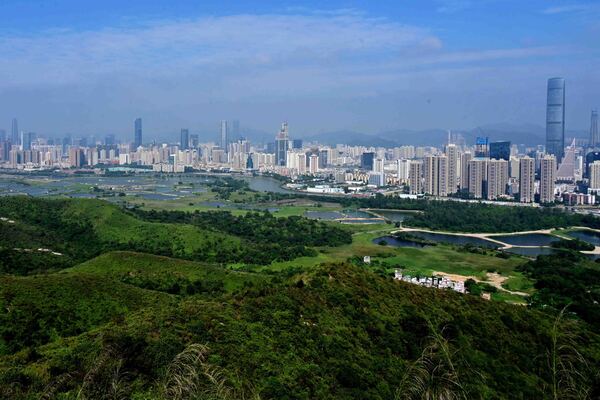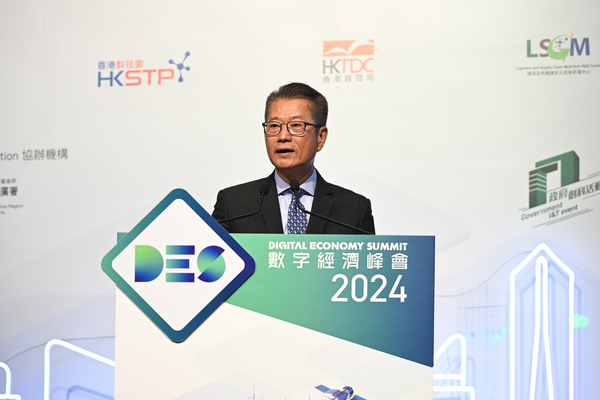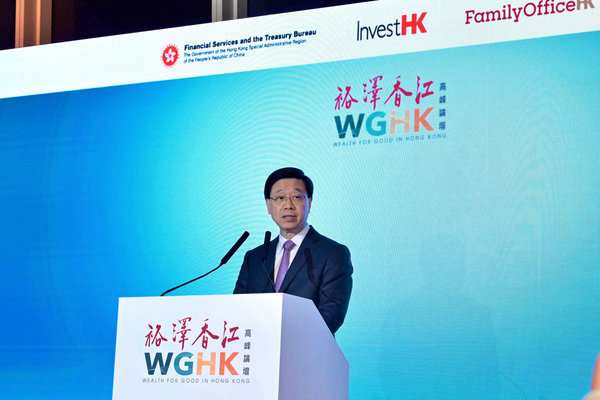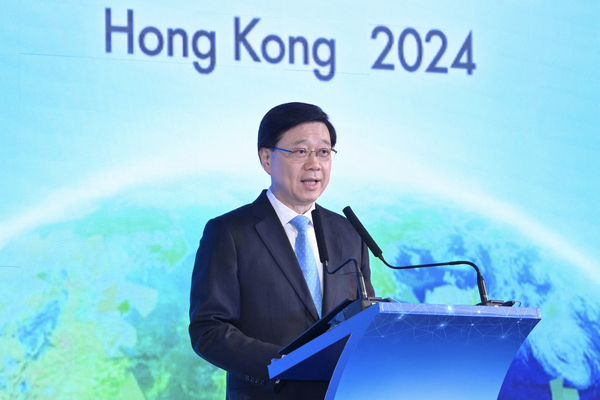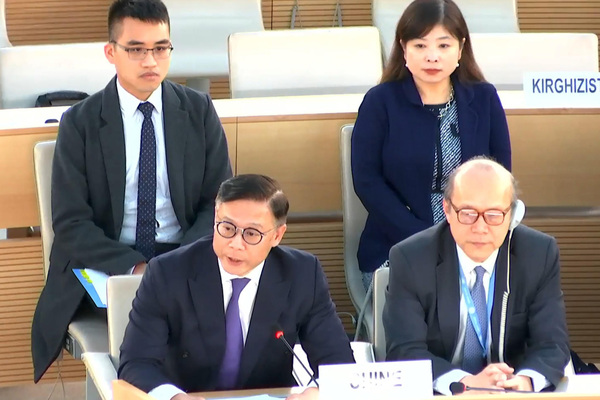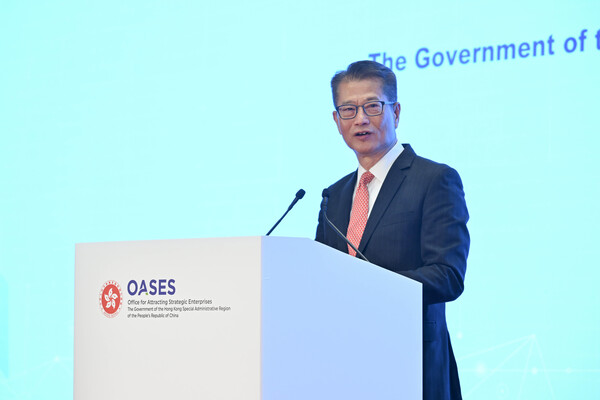
If the challenges of climate change are daunting – and they surely are – the co-operation this forum has forged, and continues to create, can only encourage us all. Working together, we can, and we will, make a decided difference.
For bringing us together in such a constructive and co-operative spirit, my thanks to the organisers, the European Union (EU) Office to Hong Kong and Macao, EuroCham Hong Kong, the Hong Kong General Chamber of Commerce, as well as Invest Hong Kong (InvestHK) of the Hong Kong SAR Government. Grateful, too, for the support by all the supporting organisations and sponsors of this important event.
Last year, as I’m sure you know, was the warmest year since global records began. The high heat continued in the first few months of this year. A comment from the Deputy Director of the EU’s Copernicus Climate Change Service, Samantha Burgess, put the issue in stark relief earlier this month, saying: “The reality is unless we change our emissions dramatically, we’ll look back at 2023 and consider it a cool year, 10 to 20 years in the future.”
Our green initiatives
Hong Kong is acutely aware of our shared responsibility in spearheading a green transformation. And I am pleased to share with you some of the initiatives now in place or in the planning.
First, let me say that Hong Kong was among the earliest cities in Asia to take action against climate change. Our involvement goes back to 1997, when we stopped construction of new, coal-fired power plants.
After reaching a peak in 2014, our carbon emissions have generally been on a downward trend, thanks to the gradual replacement of coal, with natural gas and zero-carbon sources for power generation. In 2022, our per capita emissions were 4.55 tonnes, down from 6.2 tonnes about a decade ago.
China, our country, is committed to peaking its carbon emissions before 2030, and achieving carbon neutrality by 2060. To align with the national commitment, Hong Kong, as a special administrative region, has set an ambitious target to cut carbon emissions by half before 2035 from the 2005 level, and achieve carbon neutrality by 2050. We will continue to implement the decarbonisation strategies set out in our Climate Action Plan 2050. They focus on emissions from electricity generation, transport and waste.
On electricity generation, we will cease using coal for daily electricity generation by 2035, less than 10 years from now, to realise our goal of net-zero electricity generation before 2050.
As for transport, last year 64% of our newly registered private cars were electric vehicles. A few months ago, one of Hong Kong’s major bus companies gave birth to the first hydrogen bus in its fleet. Later this year, we’ll do a trial run of hydrogen street-washing vehicles. By mid-2027, the number of parking spaces with charging facilities will jump to about 200,000.
And to achieve the goal of zero landfill by 2035, we will strengthen our efforts on recycling and expedite the development of modern waste-to-energy incinerators.
Under the unique “one country, two systems” principle, Hong Kong enjoys strong national support and maintains unparalleled connectivity with the world. Hong Kong has a long history of the rule of law, a simple tax regime and world-class business environment, as well as a multi-talented workforce. These qualities have given rise to our role as a “super connector” and “super value-adder” between the Mainland and the rest of the world. They have also ensured our continuous prominence as an international financial centre.
Sustainable finance
Hong Kong is determined to capitalise on the prowess in our financial sector today, to address the sustainability needs of tomorrow.
Hong Kong is fast rising as an international green finance centre. Last month, the Hong Kong SAR Government issued a vision statement on developing our sustainability disclosure ecosystem. We are committed to becoming one of the first places to align with the ISSB (International Sustainability Standards Board) Standards, an international standard on sustainability disclosures in financial reporting.
At last count, our green bond issuance accounted for one-third of the market share in Asia. Two months ago, we issued tokenised green bonds worth a total of HK$6 billion. In addition to the Hong Kong dollar, the issuance was also denominated in renminbi, the US dollar and the euro, making it the world’s first-ever multi-currency tokenised bond issuance, as well as a shining example in propelling sustainable finance in the era of Web3.
That brings me to our development as an international innovation and technology centre. Innovative technology plays a pivotal role in achieving carbon neutrality. The Hong Kong SAR Government has allocated $400 million to the Green Tech Fund, to support R&D (research and development) projects that help Hong Kong decarbonise.
The fund has been well received. To date, it has supported 30 projects – from local universities, public research institutes and private enterprises.
They range from green hydrogen production and construction materials, to noise-absorbing meta-materials using recycled plastic. In the next stage, we’ll promote their practical application and commercialisation.
Multi-city co-operation
Environmental issues know no borders. And we’re exploring prospects for tackling pollution and maintaining biodiversity with other cities in the Guangdong-Hong Kong-Macao Greater Bay Area.
Hong Kong and Guangdong have been collaborating on regional air quality improvement for years. A regional air quality monitoring network was established in 2005.
From 2006 to 2023, the ambient levels of major regional pollutants decreased by up to 86%, while ozone levels are still on a rising trend. That only underscores the need to strengthen our regional collaboration in this area.
To that end, early this year we concluded a three-year study on regional ozone in collaboration with Guangdong and Macau.
Our three cities are introducing the monitoring of volatile organic compounds, the main precursors of ozone formation, at regional monitoring networks, to enhance our understanding of ozone formation within the region.
We also attach great importance to biodiversity, to conserving our bountiful nature. Country parks and special conservation areas make up some 40% of Hong Kong’s land area.
Last month, we celebrated the establishment of our 25th country park, Robin’s Nest Country Park. It covers an area of 530 breath-taking hectares, home to more than 500 identified plant and animal species.
Robin’s Nest will establish a cross-boundary ecological corridor with Shenzhen’s adjoining Wutong Mountain Scenic Area. It will create good synergy within the Greater Bay Area in ecological conservation.
And we plan to establish a Wetland Conservation Parks System in phases, and ensure the preservation of the integrity of the wetland ecosystem in our developments.
Alongside our regional collaborations, we value the international partnerships we’ve established. That certainly includes our friends from the EU.
Our Airport Authority is working on an action plan to drive the use of sustainable aviation fuel in Hong Kong.
Good for the environment, good for business. Our objective is to boost the competitiveness of Hong Kong International Airport, attracting more flights between Hong Kong and the rest of the world. In this regard, we look forward to exchanges with the EU.
EU companies play an important role in our waste management, often collaborating with local counterparts.
And EU enterprises have been working closely with the Government to develop state-of-the-art waste management facilities that can reduce the bulk of our waste.
Examples include a joint venture formed to develop and operate WEEE·PARK. It was our first large-scale “waste electrical and electronic equipment” treatment and recycling facility, and got going in 2018. O · PARK1, a similar joint project, operates our first large-scale, organic resources recovery centre. Also commissioned in 2018, it turns food waste into a renewable source for electricity generation and organic compost.
Over the past year or so, let me add, the European Union Office organised six EU-Hong Kong environmental policy discussions with InvestHK. The sessions covered everything from waste and carbon trading, to green transport and mobility.
As I mentioned at the outset, together we can, and will, make a difference in creating a green, sustainable and flourishing future.
Chief Executive John Lee gave these remarks at GreenWay 2024: The Dialogue on April 29.
